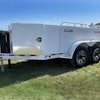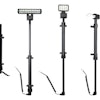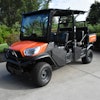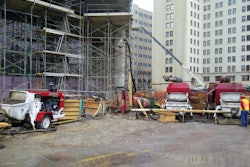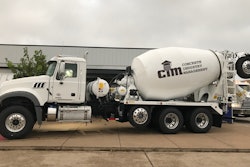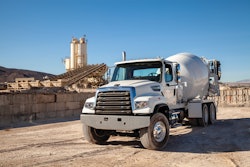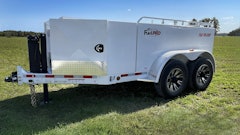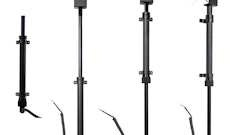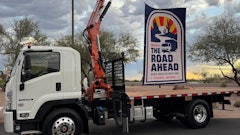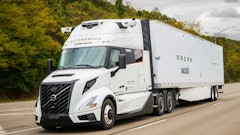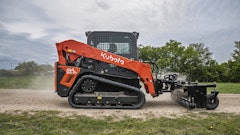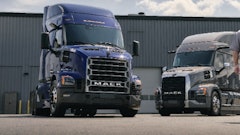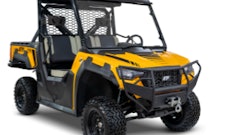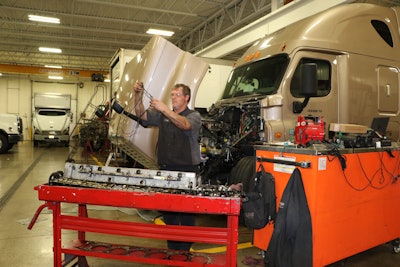
Onboard electronic data and telematics systems have transformed trucking operations, providing real-time insights into machine health and operational efficiencies. Simultaneously, truck dealers have been transforming their approach to product support to leverage the latest technologies and slash downtime expense.
To maximize the customer experience, manufacturers have worked with their dealer organizations to create programs which dramatically cut dwell time when a truck enters the shop for repairs, while providing critical feedback in a timely fashion to the truck owners so businesses can make informed decisions. Manufacturers typically certify their high-performing dealers that meet a carefully defined set of criteria. There are notable differences between the services offered by many of these certified dealerships and the rest.
For Daimler Trucks North America, its dealers strive to achieve the Elite Support certification. To find out how working with a certified dealer can impact your bottom line, Equipment Today visited Truck Country, an Elite Support-certified Freightliner, Detroit and Western Star dealer with 23 locations across the Midwest.
Truck Country was an innovator in the dealer certification process. “In 2009, we were involved in working with Daimler to create different metrics that basically allow a customer to have certain set expectations every time they walk into an Elite Support dealer,” says Garrett Richards, sales representative, Truck Country.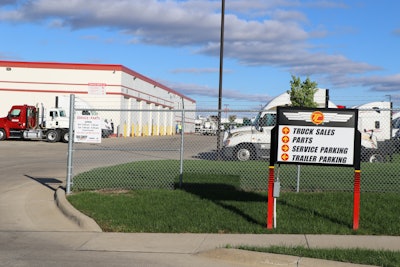 There are actually over 125 different set criteria that you must meet in order to be a Daimler Truck Elite Support dealer.
There are actually over 125 different set criteria that you must meet in order to be a Daimler Truck Elite Support dealer.
The criteria can include anything from the amenities the dealership offers to the processes for diagnosing and repairing trucks in the service department. “There are actually over 125 different set criteria that you must meet in order to be an Elite Support dealer,” says Richards. “They are all designed around keeping the customer in the know with what is going on with their truck, as well as keeping them comfortable while they are waiting for any repairs to be done.”
Uptime is the Goal
“The focus driven by the Freightliner, Detroit and Western Star products has been on uptime since at least 2009, when we were involved with designing the Elite Support criteria,” says Richards. “The Elite Support group has set the bar and we always try to keep pushing it a little bit higher.
“As a customer, if I have an issue with my truck, I want to know when I pull into a dealership that has an Elite Support badge that they are committed to getting me back on the road as soon as possible,” he continues. “And that is exactly what that means.”
As soon as the customer is checked in, the clock starts. Part of the Elite Support criteria includes Express Assessment. “That means within two hours the truck is going to be diagnosed,” says Richards. “It does not mean that it will be fixed, but it means the customer will at least have a good idea within the first two hours how long it is going to take to get back on the road.”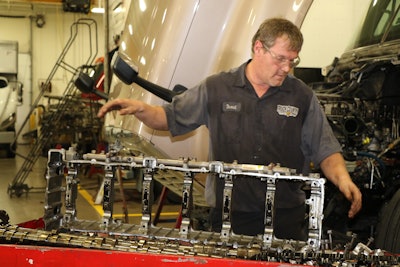 Truck Country aims for 24 hours from the time your truck gets written up to the time that it is actually released.
Truck Country aims for 24 hours from the time your truck gets written up to the time that it is actually released.
This allows customers to make the correct decisions for their business, whether it means having the driver wait for the repair or dispatching a replacement truck to finish the task.
Repair times are carefully tracked. “Freightliner’s target is to average 72 hours per truck to get in the door, get diagnosed, get repaired,” says Damian Papesh, service adviser. “Here at Truck Country, we aim for 24 hours from the time your truck gets written up to the time we are actually releasing the truck to you to be able to get back on the road. Currently, we are averaging 27 or 28 hours per truck.”
This average consists of all trucks, including those that only require routine maintenance up to those that require complete overhauls.
Reducing Time in Service
Truck Country has an Express Bay that is dedicated to diagnosing trucks as they enter the service area. “If it is a fix that can be done in less than an hour, we are going to go ahead and fix it while it is pulled in the Express Bay,” says Richards. “We have found by measuring different metrics throughout our system, if we have to pull it out and wait for a different bay for repair, that is all time that the customer is waiting for it.”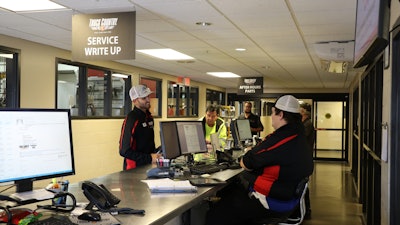 As soon as the customer is checked in, the clock starts. Within two hours of check in, the truck will be diagnosed.
As soon as the customer is checked in, the clock starts. Within two hours of check in, the truck will be diagnosed.
Part of the time savings comes from having the right tools on hand. “We make sure we have the tooling for every job.” says Papesh. For instance, Truck Country was able to shorten diagnostic times by equipping each technician with a laptop. “We make sure we have all of the correct tooling — not only the tools [we’re required] to have, but tools that can help us to get the job done quicker.”
Every tool has its assigned place, eliminating time spent searching for them. “We do footprinting, whether it be on the shop floor or in our tool room,” says Papesh. “That helps us toward our goal of averaging 24 hours.”
To achieve rapid turnaround, a culture of teamwork is also required. “To get to 24 hours, it doesn’t just take the mechanic — it takes the person who writes the truck up, a mechanic, the parts guy and a delivery guy,” notes Papesh. “They all go out and work as a team to have an opportunity to get to that goal of a 24-hour turnaround of the truck.”
Parts on Demand
“An Elite Support dealer is expected to raise the bar as being able to supply parts to customers in a very timely fashion,” says Kevin Flockhart, inside parts sales. Without parts, trucks will linger in the service department, so Truck Country’s goal of a 24-hour average repair requires timely availability. “That puts a lot of pressure on parts.”
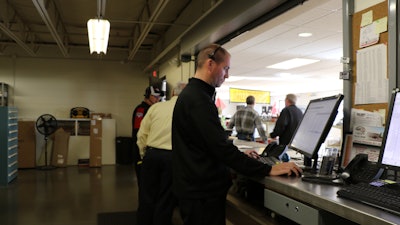 An Elite Support dealer is expected to raise the bar as being able to supply parts to customers in a very timely fashion. Without parts, trucks will linger in the service department.
An Elite Support dealer is expected to raise the bar as being able to supply parts to customers in a very timely fashion. Without parts, trucks will linger in the service department.
Parts that are not on the shelf are quickly located through distributing warehouses or, if they are non-OEM parts, through other dealers in town. “To go that extra mile, we will exhaust every resource we have to get the customer their parts,” says Flockhart. “We strive to have every part the next day if it is not on the shelf.”
[VIDEO] Parts Availability Critical to Meet Elite Support Requirements
Keep Customers Rolling
This focus on maximizing uptime is critical to Elite Support dealer customers such as Cedar Rapids, IA-based JPM Enterprises. This site construction contractor runs a fleet of four trucks in addition to excavators and dozers. “We have four Western Star trucks right now — three dump trucks and one tractor,” says Jarrod Morris.
His most critical concern is keeping trucks up and running. “It is very critical to minimize downtime,” says Morris. “We are always on the go. Our trucks are always moving. So if we have downtime, it really hurts our business... We don’t have time for somebody to be sitting around broke [down] on the side of the road. It is very important to keep these wheels turning.”
[VIDEO] Contractor Stresses the Importance of Uptime
JPM Enterprises has a close relationship with Truck Country. “These guys have treated us, hands down, far superior,” says Morris. “I get treated the same way as if I bought 100 trucks from them.”
When the inevitable maintenance issues arise, Morris calls his salesperson, who stays on top of the issue. “He may have a service guy call me or try to figure out why I am down,” he explains. “Instead of me bringing the truck there, they send somebody out to get the truck. They will give me another truck to use if they have one, which is obviously very important. You cannot be down with a truck, especially when you only have three dump trucks.”
Utilize Technology
In order to minimize downtime, it ‘s critical for dealers to help customers adopt the latest technologies. For instance, all Detroit engines come equipped with Detroit Connect and Virtual Technician. “They are engineered and designed to keep the customer in the truck and in the know on what is going on with that equipment,” says Richards.
AgVantage FS, Waverly, IA, is a full-service agricultural and energy supplier with just over 50 trucks to deliver propane, fuel and lubricants, and well over 100 trucks in all. Within the past two to three years, the company has been adopting the use of telematics systems as it upgrades to newer trucks.
This is having an impact on purchasing decisions as AgVantage works with Truck Country to equip its fleet with Detroit Connect. “We have been working with Truck Country for quite a few years,” says Dave Wiscup. But the adoption of the Detroit engines with the Detroit Connect and Virtual Technician preventive maintenance system has taken place over the past three years.
AgVantage has already realized savings through the Detroit Connect telematics systems on the Freightliner trucks. “The cost savings have proven positive,” notes Wiscup. “It is the ability to be proactive. Just in the last year we have avoided four major rebuilds.”
[VIDEO] Detroit Connect Telematics Prevent Downtime
Problems can often arise when drivers don’t report minor issues or error messages to the service departments. Telematics systems provide immediate visibility of these issues directly to service technicians and fleet managers. Every major component and system is carefully tracked by the system.
“Being able to see the issues before they become major issues and being able to address them has saved us money on maintenance costs, not to mention downtime, which is huge,” says Wiscup.
“Right now, the company has seen very positive results and we are moving forward with it,” says Wiscup. “As everybody knows, downtime can be costly. The maintenance and repairs that can be avoided — that is big.”

